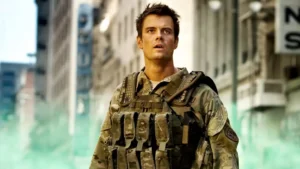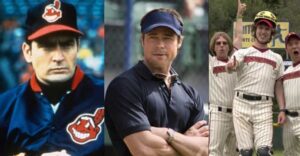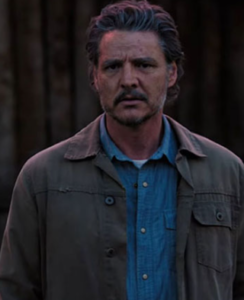Steven Soderbergh: ‘I’m the cockroach of this industry. I can survive any version of it’
New York, Jan 23 (AP) Steven Soderbergh isn’t just the director and cinematographer of his latest film. He’s also, in a way, its central character.
“Presence” is filmed entirely from the POV of a ghost inside a home a family has just moved into. Soderbergh, who serves as his own cinematographer under the pseudonym Peter Andrews (his father’s name), essentially performs as the presence, a floating point-of-view that watches as the violence that killed the mysterious ghost threatens to be repeated.
For even the prolific Soderbergh, the film, which opens Friday in theatres, was a unique challenge. He shot “Presence” with a small digital camera while wearing slippers to soften his steps.
The 62-year-old filmmaker recently met a reporter in a midtown Manhattan hotel in between finishing post-production on his other upcoming movie (“Black Bag”, a thriller Focus Features will release March 14) and beginning production in a few weeks on his next project, a romantic comedy that he says “feels like a George Cukor movie”.
Soderbergh, whose films include “Out of Sight”, the “Ocean’s 11” movies, “Magic Mike” and “Erin Brockovich”, tends to do a lot in small windows of time. “Presence” took 11 days to film.
That dexterous proficiency has made the ever-experimenting Soderbergh one of Hollywood’s most widely respected evaluators of the movie business.
In a wide-ranging conversation, he discussed why he thinks streaming is the most destructive force the movies have ever faced and why he’s “the cockroach of this industry.”
AP: You use pseudonyms for yourself as a cinematographer and editor. Were you tempted to credit yourself as an actor for “Presence”?
Soderbergh: No, but what I did is subtle. For the first and only time Peter Andrews has a camera operator credit. That’s not a credit that I typically take because I don’t need it and I typically have another operator working with me. But I felt like this was a workout. It was tricky, but really fun. It was another level of performance anxiety because I ruined more takes than anyone else in the film by a larger factor. I was the one going: “Cut. I f—ed that up. We got to go again.”
AP: You made this quickly and inexpensively, and then sold it to a distributor. Was it appealing to work outside the system?
Soderbergh: The beauty of projects at this scale is I can just do them without having to talk to anybody. It’s not because I don’t want notes. It’s because it’s just the brain trust and none of the psychic real estate is taken up by things that have nothing to do with what you’re going to shoot. I went from that into a more traditional project in which a lot of psychic real estate gets taken up by the process of having a studio finance your movie. I like these people, it’s just a lot of lawyers. Like, a lot of lawyers.
AP: You’ve called streaming the most destructive force in movie history. What most irks you about it?
Soderbergh: It removes a key reference point for an artist. It’s helpful to know how something is doing, or how it did. You need to know that to calibrate whether you accomplished what you wanted to accomplish, whether you can work at a certain level. That’s one of the most confusing things about it, the black box of it. Apart from the economic invisibility of what’s going on there — the fact that we can’t really look under the hood of how these streaming companies work economically — there’s another kind of handrail that’s missing that I find really helpful. At the end of the day, I, at least, want to know. The market will tell you how you’re doing. I want to know that so I can adjust or go in another direction. Being irrelevant isn’t very appealing. What is the overlap between what people seem to be responding to and what I like? Because I don’t want to make these things and have nobody see them. I’ve had enough people say, “Oh, did that come out?” It’s a public art form.
AP: How do you suspect the audience is changing?
Soderbergh: The good news is, if you talk to Focus Features and Neon and A24, young people are going to the movies. This is the Letterboxd generation. That’s fantastic. I hope that ripples outside the US. They are cine-literate and they expect something singular. They want the signature, they want the stamp of a filmmaker. And that’s turning into a real business. One of the things, I think, we all need to do, but especially the people who cover the industry, is to stop using the studio metric for what a success is. That’s not a template you should be applying to everything.
AP: Do you ever lament that the movies that made you want to be a filmmaker like “All the President’s Men” and “Chinatown” occupied a different place in the culture than today’s films?
Soderbergh: There was a period of about 10 to 14 year where the best movies of the year were also the most popular movies of the year. That’s not necessarily true anymore. You can pick one of the movies that’s in the hunt this year and go: That’s a ’70s movie. That’s as good and interesting as one of those. But it’s not going to do the business that one of those would have done. It’s the artist’s job to adapt. When it comes to trying to control what people want to go see, you’re now in a place like: “If I really wish hard, it won’t rain.” The weather is the weather. To a certain degree, the audience is a weather system. Luckily because of the way I began, I’m the cockroach of this industry. I can survive any version of it.






